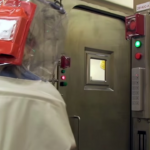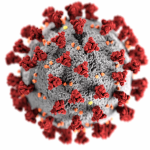How the House health care bill undercuts bioterror and pandemic defenses
By John Mecklin | May 5, 2017

The celebration, denunciation, and media dissection of the House of Representatives’ health care bill has focused largely on how the bill that passed this week would affect citizens and their pocketbooks, if it ever became law. But no matter how important preexisting-condition coverage and Medicaid funding might be—i.e., very important—the cuts the bill would make in federal support for public health seem to be getting fairly short media shrift.
For all sorts of reasons, the US public health system—as patchwork as it may be—is absolutely vital to protecting the United States and the world from bioterrorism and natural disease outbreaks that could turn pandemic. I could offer a long policy discussion here to support the previous sentence, but I think two words will do the job: Ebola. Anthrax.
According to a question-and-answer string generated by the Washington Post, the House health care bill “would eliminate funds for fundamental public health programs, including for the prevention of bioterrorism and disease outbreaks, as well as money to provide immunizations and heart-disease screenings” and gut a fund that provides almost $1 billion annually to the Centers for Disease Control and Prevention (CDC).
The panic that attended the anthrax letter attacks of 2001 and Ebola cases in 2014—incidents that claimed only a relative handful of victims each in this country—would pale in comparison to the uproar accompanying a widespread outbreak of serious disease, whether it were natural in origin or manmade. The systems needed to detect outbreaks early and forestall pandemic are exactly the programs that the House health care bill cuts. Many of those systems are run by state health departments, which would lose hundreds of millions of dollars because of cuts in funding for the CDC.
At the same time, it seems likely that if the Senate agrees to something close to the House health care bill, millions of Americans will also lose health insurance coverage. This combination—disinvestment in public health and large reductions in the number of people with access to timely medical care—could facilitate the type of pandemic that causes mass casualties and threatens social order. Such a level of risk demands an increased level of attention from the media, and from the Senate, as it decides how it will address—and, I hope, greatly change—the House version of health care “reform.”
Publication Name: Washington Post
To read what we're reading, click here
Together, we make the world safer.
The Bulletin elevates expert voices above the noise. But as an independent nonprofit organization, our operations depend on the support of readers like you. Help us continue to deliver quality journalism that holds leaders accountable. Your support of our work at any level is important. In return, we promise our coverage will be understandable, influential, vigilant, solution-oriented, and fair-minded. Together we can make a difference.
Topics: Biosecurity, Special Topics, What We’re Reading














